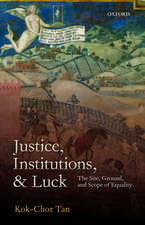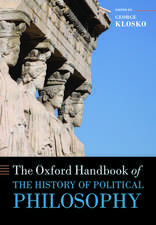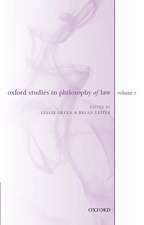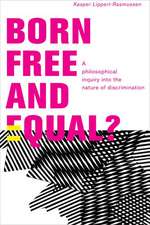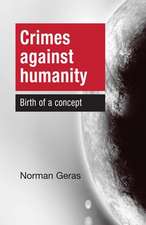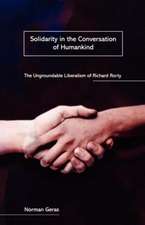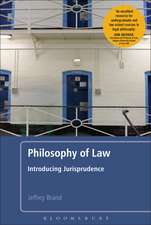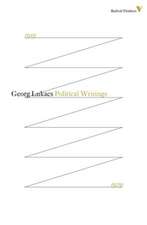Contract of Mutual Indifference: Manchester University Press
Autor Norman Gerasen Limba Engleză Paperback – 30 mar 2019
| Toate formatele și edițiile | Preț | Express |
|---|---|---|
| Paperback (2) | 137.38 lei 3-5 săpt. | |
| VERSO – 31 iul 1999 | 137.38 lei 3-5 săpt. | |
| MANCHESTER UNIVERSITY PRESS – 30 mar 2019 | 169.74 lei 6-8 săpt. |
Din seria Manchester University Press
-
 Preț: 208.97 lei
Preț: 208.97 lei -
 Preț: 75.48 lei
Preț: 75.48 lei -
 Preț: 118.05 lei
Preț: 118.05 lei -
 Preț: 205.21 lei
Preț: 205.21 lei -
 Preț: 133.20 lei
Preț: 133.20 lei - 23%
 Preț: 569.49 lei
Preț: 569.49 lei -
 Preț: 115.78 lei
Preț: 115.78 lei -
 Preț: 247.10 lei
Preț: 247.10 lei -
 Preț: 259.75 lei
Preț: 259.75 lei -
 Preț: 209.53 lei
Preț: 209.53 lei - 23%
 Preț: 725.31 lei
Preț: 725.31 lei -
 Preț: 157.24 lei
Preț: 157.24 lei -
 Preț: 134.76 lei
Preț: 134.76 lei -
 Preț: 117.33 lei
Preț: 117.33 lei -
 Preț: 156.10 lei
Preț: 156.10 lei -
 Preț: 253.18 lei
Preț: 253.18 lei -
 Preț: 206.14 lei
Preț: 206.14 lei -
 Preț: 205.86 lei
Preț: 205.86 lei -
 Preț: 248.47 lei
Preț: 248.47 lei -
 Preț: 115.53 lei
Preț: 115.53 lei - 23%
 Preț: 536.60 lei
Preț: 536.60 lei -
 Preț: 248.25 lei
Preț: 248.25 lei -
 Preț: 126.19 lei
Preț: 126.19 lei -
 Preț: 134.97 lei
Preț: 134.97 lei -
 Preț: 78.71 lei
Preț: 78.71 lei -
 Preț: 205.75 lei
Preț: 205.75 lei - 23%
 Preț: 568.23 lei
Preț: 568.23 lei -
 Preț: 154.67 lei
Preț: 154.67 lei -
 Preț: 115.45 lei
Preț: 115.45 lei - 23%
 Preț: 537.23 lei
Preț: 537.23 lei -
 Preț: 117.84 lei
Preț: 117.84 lei - 23%
 Preț: 536.63 lei
Preț: 536.63 lei -
 Preț: 205.14 lei
Preț: 205.14 lei -
 Preț: 214.14 lei
Preț: 214.14 lei - 14%
 Preț: 521.75 lei
Preț: 521.75 lei -
 Preț: 156.79 lei
Preț: 156.79 lei -
 Preț: 156.74 lei
Preț: 156.74 lei - 23%
 Preț: 537.14 lei
Preț: 537.14 lei -
 Preț: 208.16 lei
Preț: 208.16 lei -
 Preț: 206.87 lei
Preț: 206.87 lei -
 Preț: 118.11 lei
Preț: 118.11 lei -
 Preț: 118.09 lei
Preț: 118.09 lei - 23%
 Preț: 537.56 lei
Preț: 537.56 lei -
 Preț: 206.51 lei
Preț: 206.51 lei
Preț: 169.74 lei
Nou
Puncte Express: 255
Preț estimativ în valută:
32.48€ • 33.100$ • 27.03£
32.48€ • 33.100$ • 27.03£
Carte tipărită la comandă
Livrare economică 31 martie-14 aprilie
Preluare comenzi: 021 569.72.76
Specificații
ISBN-13: 9781526104755
ISBN-10: 152610475X
Pagini: 208
Dimensiuni: 138 x 216 x 14 mm
Greutate: 0.21 kg
Editura: MANCHESTER UNIVERSITY PRESS
Seria Manchester University Press
ISBN-10: 152610475X
Pagini: 208
Dimensiuni: 138 x 216 x 14 mm
Greutate: 0.21 kg
Editura: MANCHESTER UNIVERSITY PRESS
Seria Manchester University Press
Descriere
This is the first academic study to address ancient Egypt as it was appropriated across disparate literary modes during the Victorian era. Drawing on texts by canonical authors while illuminating new sources and understudied works, it brings the highbrow and the popular into conversation, addressing contemporary ideas of race, gender and religion.
Notă biografică
Norman Geras is Professor of Government at the University of Manchester. His books include Solidarity in the Conversation of Humankind, Marx and Human Nature and The Legacy of Rosa Luxemburg.
Recenzii
“Geras’s is a remarkable book written with passion, compassion, and a genuine belief in the possibility of a better future. He is right to prompt us into proper consideration of what has previously been ignored.”—Imprints
“In his passionate and lucid argument about political theory after the holocaust, Geras explains his baleful titular concept: if you are unwilling to help others in their need, you cannot expect others to do the same for you. Therefore any political philosophy which neglects the primacy of human duty to bring aid is short-sighted and shameful.”—Guardian
“Some devote considerable time and money to combating moral catastrophes, but most of us hardly do more than lift a finger. Our behavior is the subject of Norman Geras’s thought-provoking new book ... Geras identifies a major gap in contemporary political philosophy.”—Times Literary Supplement
“The skill of Geras’s approach is to point to the wider implications of the Holocaust, while refusing to offer easy answers to the intractable questions it raises.”—New Statesman
“In his passionate and lucid argument about political theory after the holocaust, Geras explains his baleful titular concept: if you are unwilling to help others in their need, you cannot expect others to do the same for you. Therefore any political philosophy which neglects the primacy of human duty to bring aid is short-sighted and shameful.”—Guardian
“Some devote considerable time and money to combating moral catastrophes, but most of us hardly do more than lift a finger. Our behavior is the subject of Norman Geras’s thought-provoking new book ... Geras identifies a major gap in contemporary political philosophy.”—Times Literary Supplement
“The skill of Geras’s approach is to point to the wider implications of the Holocaust, while refusing to offer easy answers to the intractable questions it raises.”—New Statesman


